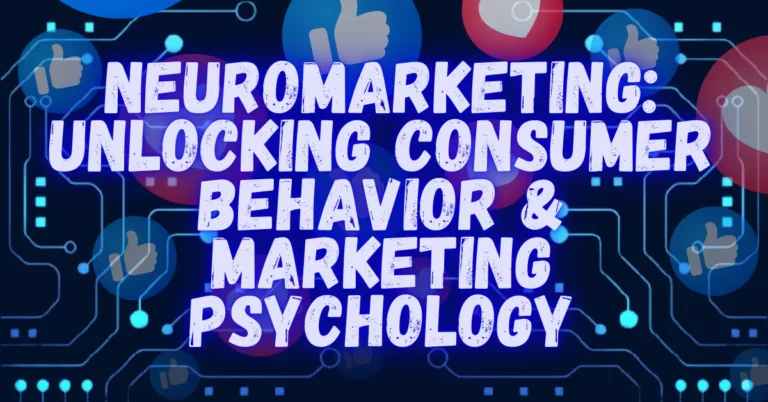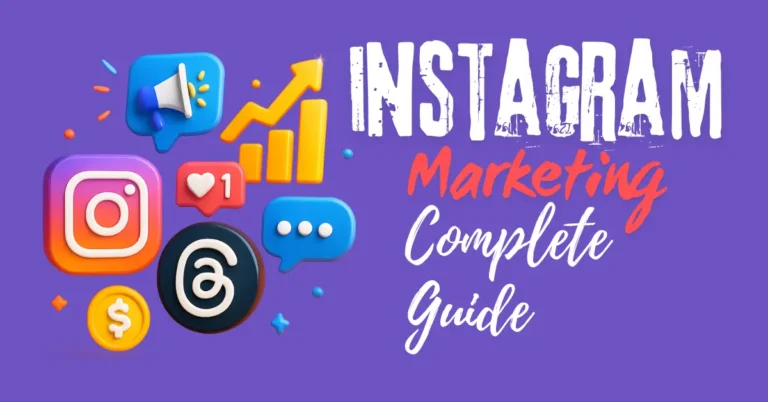Introduction
In 2025, artificial intelligence AI Is Transforming Digital Marketing; it’s the backbone of innovation. From predictive analytics to hyper-personalized campaigns, AI in digital marketing is transforming how brands engage with their audiences. Whether you’re a startup owner or a CMO at a Fortune 500 company, ignoring AI means falling behind.
So, what exactly is changing, and why should marketers care?
In this in-depth post, we’ll explore how AI is redefining digital marketing in 2025 through cutting-edge tools like ChatGPT for marketing, automation platforms, and real-time customer analytics. We’ll also highlight emerging trends, practical use cases, pros and cons, and strategic insights to help you stay ahead.
Table of Contents
The AI Revolution in Digital Marketing: Why Now?
Digital marketing has always been about data. But until recently, marketers could only scratch the surface of what data could do. AI changes that. With machine learning algorithms, natural language processing (NLP), and predictive models, marketers can now:
- Understand user behavior in real-time
- Create hyper-personalized content at scale
- Automate repetitive tasks with surgical precision
- Optimize campaigns on the fly
Key Stats (2025)
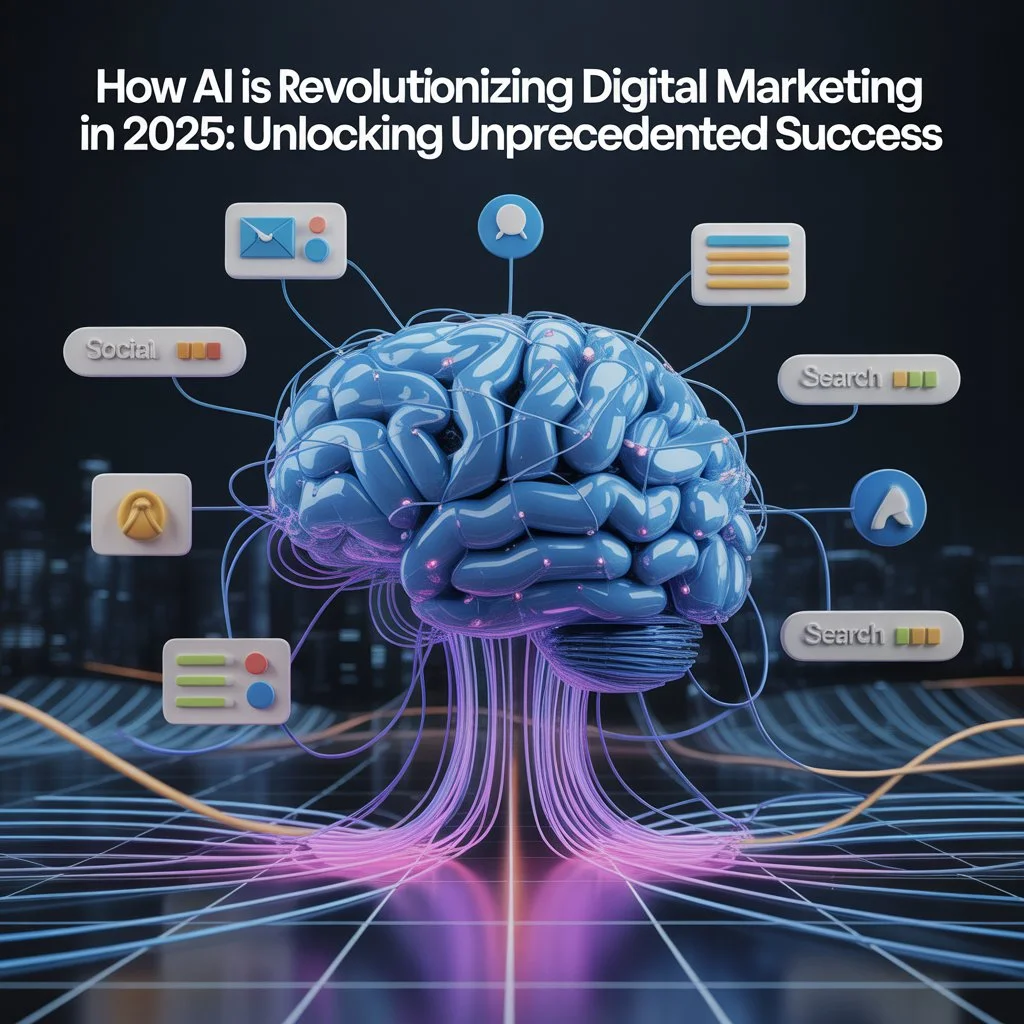
- 84% of marketers now use some form of AI in their strategies
- → Statista Report on AI in Marketing (2025)
- 3x ROI reported from AI-driven personalization over traditional methods
- → McKinsey: The Value of Personalization at Scale
- 65% of businesses now use ChatGPT or similar tools for marketing content creation
- → Forbes: How Generative AI Is Changing Marketing
Top Ways AI Is Transforming Digital Marketing in 2025
1. ChatGPT for Marketing: The Rise of Conversational AI
Natural Language Processing (NLP) has reached new heights. ChatGPT, and similar large language models, are being used not just for customer service but across:
- Content Creation: Blogs, emails, ad copies, video scripts.
- SEO Optimization: Real-time keyword suggestions and meta content generation.
- Customer Engagement: Personalized responses across chatbots and virtual assistants.
Use Case Example: A fashion e-commerce brand uses OpenAI’s ChatGPT to dynamically generate product descriptions based on customer preferences and browsing history.
Pros:
- Saves content creation time
- Increases personalization
- Reduces human error
Cons:
- Requires strong prompt engineering
- Needs brand-specific fine-tuning
2. Marketing Automation Tools Powered by AI
Modern marketing automation tools now come embedded with AI. These platforms do more than schedule emails:
- Predictive Lead Scoring
- Customer Journey Mapping
- Behavioral Email Triggers
- Dynamic Content Generation
Popular Tools in 2025:
| Tool Name | Core AI Feature | Best Use Case |
|---|---|---|
| HubSpot AI | Predictive CRM & content | B2B Lead Nurturing |
| Mailchimp AI | Behavioral triggers | Ecommerce Email Campaigns |
| Jasper | Content AI | Long-form blog & ad copy |
Learn how to build an email list in 2025.
3. Hyper-Personalization with AI Algorithms
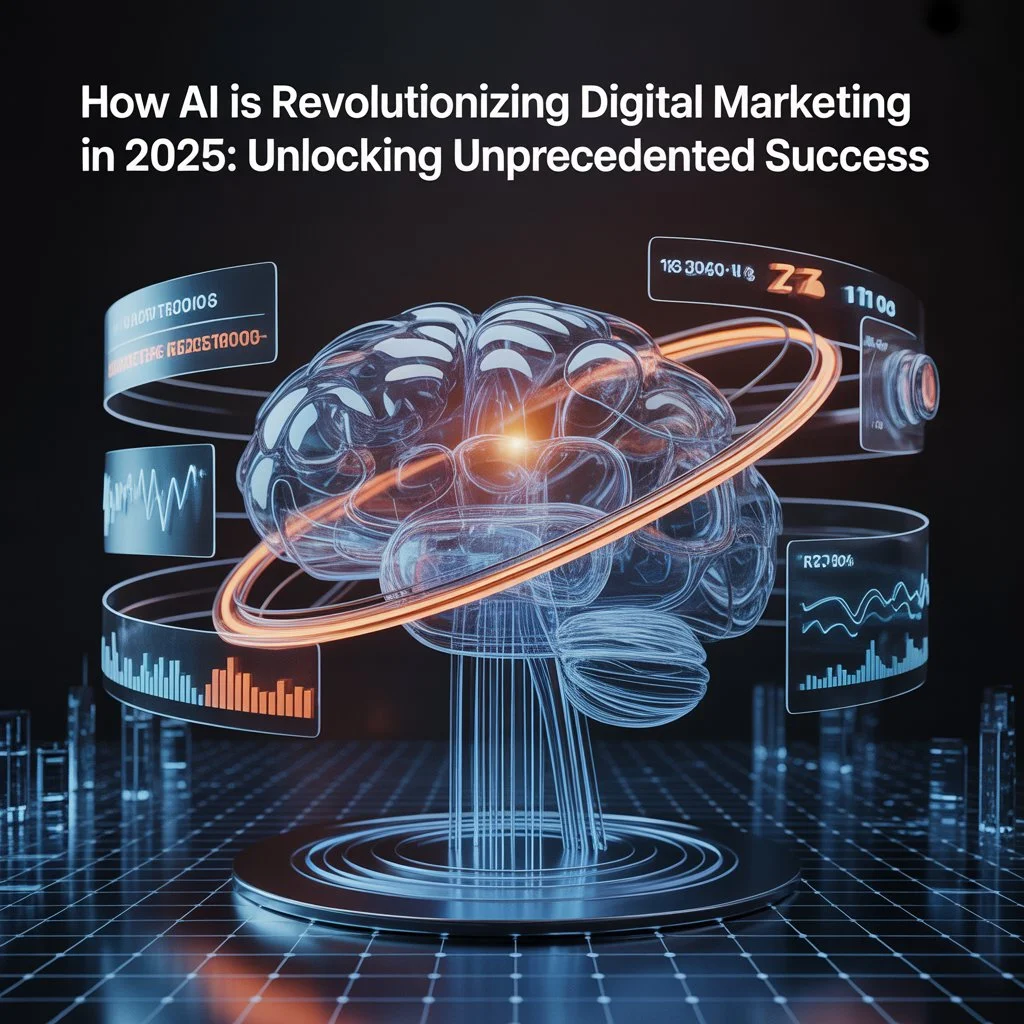
Forget segmentation; AI allows individual-level personalization using real-time data from behavior, location, device, and even mood.
Applications:
- Product recommendations
- Custom landing pages
- Personalized video ads
External Example: Netflix’s AI-driven thumbnails now dynamically change based on viewer history and click patterns.
4. Predictive Analytics & Customer Insights
AI in digital marketing means forecasting trends, not just reacting to them.
Features:
- Predict future purchases
- Optimize ad budget allocation
- Identify at-risk customers
Example: A SaaS company predicts when a user might churn and triggers a retention email series before it happens.
5. Visual Recognition & AI-Driven Design
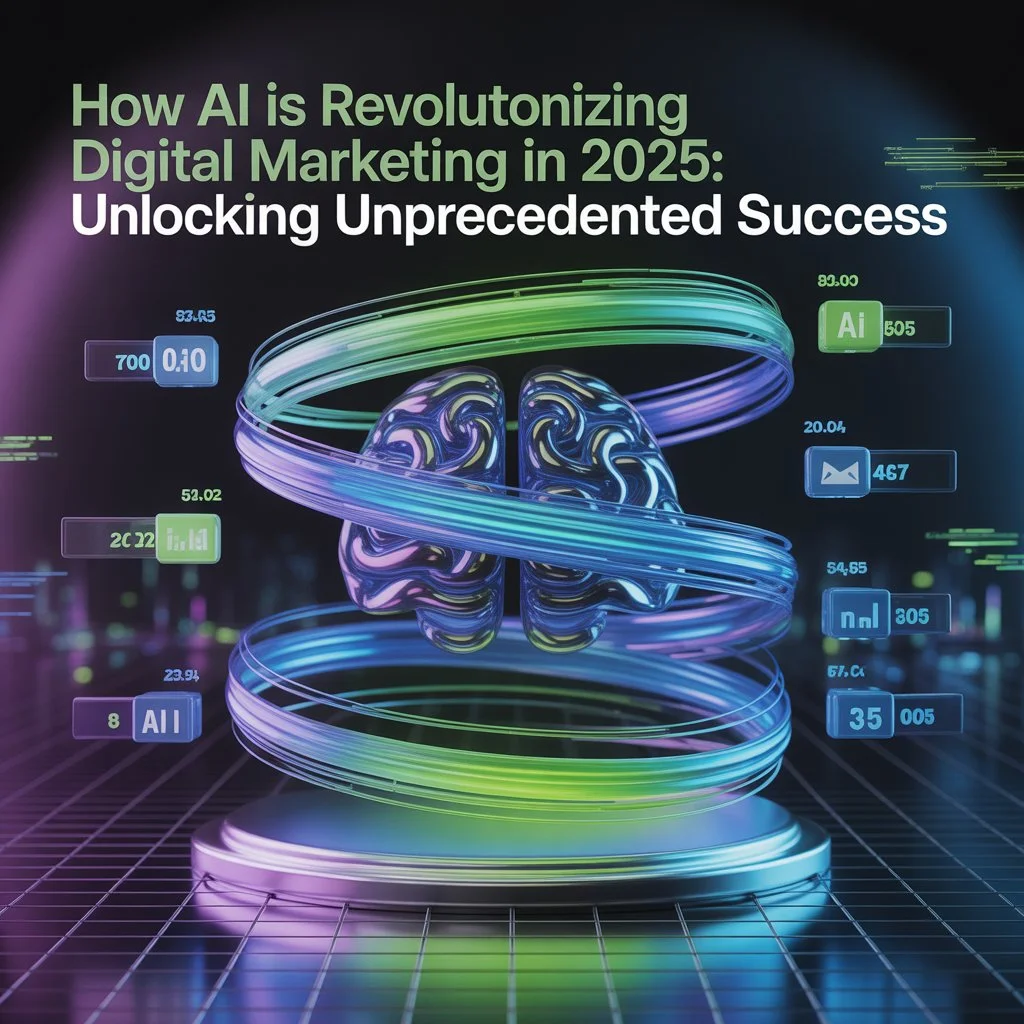
With tools like Canva AI and Adobe Sensei, creatives can:
- Auto-generate brand-compliant designs
- Use AI to A/B test creatives
- Analyze image performance across platforms
Infographic Suggestion: “AI vs Human Design Performance in 2025: What Converts Better?”
6. Voice Search Optimization & AI SEO
AI tools optimize content for voice and semantic search, which now account for 50%+ of all searches.
Best Practices:
- Use NLP for topic clustering
- Optimize for featured snippets
- Integrate conversational keywords
Tool Tip: Try MarketMuse or SurferSEO for NLP-driven content optimization.
7. AI in Ad Targeting and Media Buying
AI helps allocate budget across platforms in real-time and adjust bids based on:
- Conversion probability
- Historical performance
- Competitor behavior
Verdict: This reduces ad spend waste and maximizes ROAS (Return on Ad Spend).
Pro Tip: Use AI-integrated DSPs (Demand-Side Platforms) to automate and optimize paid campaigns.
Key Insights: Is AI a Replacement or an Enhancement?
AI is a powerful enhancer—not a total replacement—for human marketers.
| Function | AI Capability | Human Role |
|---|---|---|
| Content Writing | Drafting, optimizing | Editing, storytelling |
| Campaign Planning | Data-driven segmentation | Creative strategy |
| Customer Service | Chatbots & FAQs | Escalated queries |
In 2025, marketers who combine AI tools with emotional intelligence and brand understanding will dominate.
Common FAQs About AI in Digital Marketing (2025)
Q1. Can small businesses afford AI marketing tools?
Yes! Many AI-driven tools offer free plans or affordable pricing tiers for small businesses.
Q2. Is using ChatGPT for marketing ethical?
Absolutely—if transparency and fact-checking are maintained. Always disclose AI-generated content where necessary.
Q3. Do AI tools hurt creativity?
Not if used right. AI handles the repetitive, allowing humans to focus on big ideas and innovation.
Final Thoughts: The Future Is Already Here
AI in digital marketing isn’t about replacing humans. It’s about amplifying creativity, scaling personalization, and delivering smarter campaigns. From ChatGPT for marketing to AI automation tools, 2025 is the year marketers move from data-driven to AI-augmented strategies.
Want to lead, not lag? Start exploring and integrating AI tools today.


